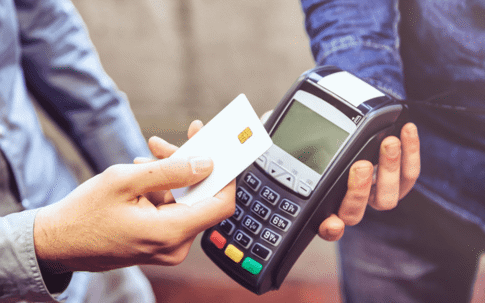As 2020 fades into the distance, consumer and household debt continue their previous trajectory with historical highs quarter after quarter. Even as millions were laid off during the initial spread of COVID, all those typical household bills were still expected to be paid by Americans struggling not only with their health—but also their finances.
With millions sick and hundreds of thousands of Americans losing their lives to the viral pandemic sweeping the world, consumers were suddenly confined to their homes. Offices closed, letting employees go or sending them home to work indefinitely, teachers suddenly began working online or in limited groups, students became versed in attending online classrooms, shopping became relegated to the Internet, delivery and supply chain issues began to emerge, and suddenly even the simplest tasks like grocery shopping became more difficult than usual—as well as somewhat frightening due to the potential for catching an invisible germ that could lead to serious illness or even death.
As the ‘new normal’ emerged and millions of US citizens were relegated to their homes for months of isolation due to complete shutdowns and lockdowns, credit card usage was actually down. There simply wasn’t the chance to go out to eat once or twice a week (or more), fill up on gas for that constant commute back and forth, shop conventionally, go on vacation—and in essence, do all the spending that we do in normal times. Life became quieter, simpler, and easier in some cases while others faced terrible illness and devastation to their families.
″It’s been an upside down credit environment,” said Stephen Biggar, who covers financial institutions at Argus Research. “If you told me the market was going to crash 40% and we would have 20% unemployment, you would have also said card delinquency rates would go through the roof, particularly for the lower-end consumer.”
Credit cards as a whole may have been used less but for far too many Americans, they became an alternative form of income—and one that quickly ran out. Unfortunately, eventually sympathy from creditors and debt collection agencies eventually ran out too and bills came due. While it may have been months before creditors were back in businesses collecting on debts, they did expect to be paid. Some payments are still being delayed as student loans are on deferment through February of 2022, and eviction moratoriums continue.
Whether your credit card debt was accrued before 2020, during the pandemic, or just recently, if you are being sued, speak to an attorney as soon as possible to answer the collection lawsuit and make it clear that you are taking a proactive approach rather than procrastinating. Without any attention to the matter, you could find yourself dealing with wage garnishments, loss of property, and loss of control over checking accounts too.
Speak with an attorney from Fitzgerald & Campbell, APLC as soon as possible to examine your options. Our attorneys have decades of experience in serving clients as they navigate through challenging financial situations, to include student loan issues, bankruptcy, and other debt management processes. We are here to help! Click here to schedule a free 30-minute consultation, call us at (844) 431-3851, or email us at info@debtorprotectors.com.

